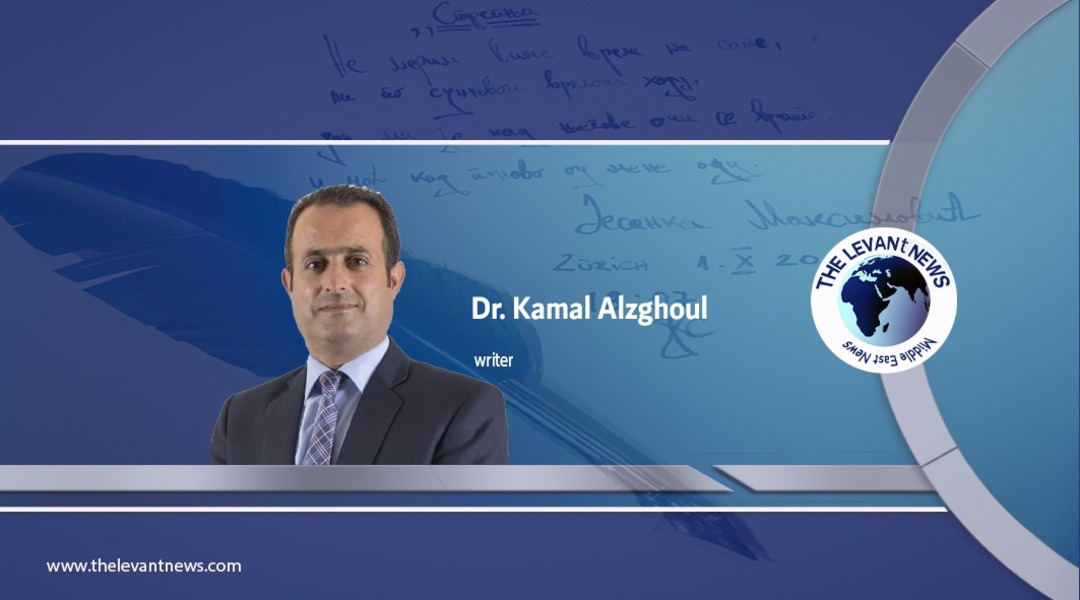-
What is the chance of creating a multipolar world order?!

Multipolar world order does not come with a conventional war or with a proxy war like in Ukraine. Multipolar world order must come as a result of the military action surprise that will be caused by one of the great powers, and although we are in the midst of some proxy wars, we are still in the preliminary stage of creating a real international clash.
No doubt, using tactical nuclear weapons has become a controversial issue, but the great powers calculate the policy differently, putting in their mind their shared interests. Many indicators should measure the material superiority of a unipolar world like the strength of the economy and its resources, military might, and technological capabilities.
The economic factor is the most important element that comes to mind when we think about any global clash. The high price of gas and oil, the unemployment rate, the lack of supply chains in the world, and the high rate of the national debt, all may lead to a global clash.
The second factor for competitors that may participate in forming a new world order is the ability to build up arms and fabricate weapons. Productivity and confidence in new weapons are essential factors that may let great powers calculate issues very well which may end up with a bipolar world order and remove the illusion of a multipolar world.
The third factor, which may pave the road for one power to lead the world, is the element of surprise. For instance, In World War II, the nuclear shock in Nagasaki and Hiroshima drew the features of the actual world order which inaugurated the Cold War, and as a result of that, the United States of America came to the fore followed by the Soviet Union.
The means that led to forming the world order after World War II was through consensus on interests between the two competing powers, namely U.S. and Russia, against a third pole, which was Germany, and that created a bipolar world, but what is happening now, is emerging a margin for a fragile polar alliance between Russia and China against a third strong pole, which is the United States. The fragility of the Sino-Russian alliance will take traditional bipolar Russia and America together again, through which China may be neutralized. Suppose China miscalculates the consequences of an alliance with Russia. In that case, it will be the beginning of its collapse, because Russia considers an alliance with China a temporary interest as well as it affects Russia’s geopolitical influence in the region.
In conclusion, a multipolar World order does not serve the Russian or American interests alike, and returning to a bipolar world order is the ideal solution for Russia and U.S. Therefore, neutralizing China through negotiations between U.S. and Russia is a demand for both countries to demarcate their international interests’ borders.
On the other hand, if a new world order is not built on negotiations between two great powers (U.S. & Russia) to neutralize the third power, which is China, through an armament surprise and Russian-U.S. sharing of interests, for sure, a multipolar world order will arise in which the opportunities for proxy wars multiply, and a confused international competition intensifies, and escalation among great powers may arise rapidly. In the end, if we have a multipolar world order with geopolitical fluctuations, then we will live in a cruel and confusing divided world. Until now, we live in the illusion of multipolar world order and to let that happen, we need to calculate the realistic indicators to decide about the multipolar world . Generally speaking, the card for creating a multipolar world is in the hands of Russia, and it depends on the strength and seriousness of the Sino-Russian alliance as well as on the solidarity of regional countries around this idea.

BY: Dr Kamal Alzghoul
You May Also Like
Popular Posts
Caricature
BENEFIT Sponsors BuildHer...
- April 23, 2025
BENEFIT, the Kingdom’s innovator and leading company in Fintech and electronic financial transactions service, has sponsored the BuildHer CityHack 2025 Hackathon, a two-day event spearheaded by the College of Engineering and Technology at the Royal University for Women (RUW).
Aimed at secondary school students, the event brought together a distinguished group of academic professionals and technology experts to mentor and inspire young participants.
More than 100 high school students from across the Kingdom of Bahrain took part in the hackathon, which featured an intensive programme of training workshops and hands-on sessions. These activities were tailored to enhance participants’ critical thinking, collaborative problem-solving, and team-building capabilities, while also encouraging the development of practical and sustainable solutions to contemporary challenges using modern technological tools.
BENEFIT’s Chief Executive Mr. Abdulwahed AlJanahi, commented: “Our support for this educational hackathon reflects our long-term strategic vision to nurture the talents of emerging national youth and empower the next generation of accomplished female leaders in technology. By fostering creativity and innovation, we aim to contribute meaningfully to Bahrain’s comprehensive development goals and align with the aspirations outlined in the Kingdom’s Vision 2030—an ambition in which BENEFIT plays a central role.”
Professor Riyadh Yousif Hamzah, President of the Royal University for Women, commented: “This initiative reflects our commitment to advancing women in STEM fields. We're cultivating a generation of creative, solution-driven female leaders who will drive national development. Our partnership with BENEFIT exemplifies the powerful synergy between academia and private sector in supporting educational innovation.”
Hanan Abdulla Hasan, Senior Manager, PR & Communication at BENEFIT, said: “We are honoured to collaborate with RUW in supporting this remarkable technology-focused event. It highlights our commitment to social responsibility, and our ongoing efforts to enhance the digital and innovation capabilities of young Bahraini women and foster their ability to harness technological tools in the service of a smarter, more sustainable future.”
For his part, Dr. Humam ElAgha, Acting Dean of the College of Engineering and Technology at the University, said: “BuildHer CityHack 2025 embodies our hands-on approach to education. By tackling real-world problems through creative thinking and sustainable solutions, we're preparing women to thrive in the knowledge economy – a cornerstone of the University's vision.”
opinion
Report
ads
Newsletter
Subscribe to our mailing list to get the new updates!






















